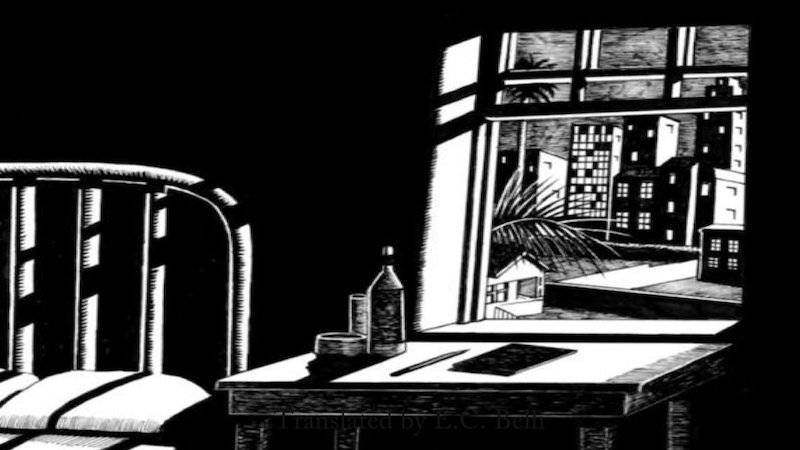Cameroonian Anglophone Literature: Peripheral, Prophetic, and Radical
Nchanji Njamnsi Recommends Mwalimu Johnnie MacViban, Imbolo Mbue, and More
Cameroon Anglophone literature has been variously described as “peripheral, radical, a perpetual lament.” Consensus about any literature has historically been a hard thing to come. It should not even be desired. However, the Anglophone Cameroon literature I grew up reading—and that stuck with me—is quite varied. It spans tribes and villages, sprawling over the years into cities, countries, and continents to reach the globe. It is a cocktail of poetry, short stories, plays, novels, and non-fiction. It portrays villagers, boys, women, chiefs, elected officials, white men, and immigrants. Its presence can now be felt miles away from its epicenter in Cameroon.
At a time when Cameroon is plagued by rampant corruption, native land-grabbing by government officials, the erosion of traditional ruler authority, high amounts of illegal immigration, and the destructive rise of local Pentecostal churches, Cameroon anglophone literature takes on a prophetic character. It foretold—decades ago—many of the current challenges the country is wrestling with. Here are five novels from the stables of Cameroonian English-speaking authors that you should explore, to marvel at the breadth and depth of writing from this often-overlooked part of the world.
*
Nsanda Eba, The Good Foot (Oxford University Press)
Tucked away in the annals of early post-colonial Cameroonian anglophone literature is this 149-page gem by Nsanda Eba. This 1977 novel recounts—with touching humanity—the ordeals of a plantation laborer’s family as they reach for social advancement through back-breaking work, unrelenting hope, and an undying belief in the power of education, laying bare in the process the exploitative nature of plantation agriculture and its role in shaping population dynamics as well as xenophobia-tinged politics in modern-day Cameroonian towns like Mutengene and Tiko. Discovering Mbamu, the novel’s teenage character, his childhood and his relationship with his father struck a human chord with me as it mirrored my own relationship with my dad, often strained by his almost-obsessive insistence on the ultimate importance of education.
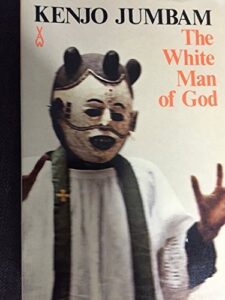
Kenjo Jumbam, The White Man of God (African Writers Series)
Set in Nsoland in pre-colonial Cameroon, this book portrays how early Christianity was sacrilegiously, intentionally and unintentionally, weaponized, to divide not only families but entire villages. In this context, and in the hands of missionaries, the Good Samaritan story in the Book of Luke became a story about a black man being trapped under a rubber tree, where neither his village nor his blood brothers would help him. Meanwhile, the “good Samaritan” who ultimately came to his aid was the white man—the white priest, to be precise. Kenjo Jumbam’s 1980 novel remains an informative look at the confusion, division, and destruction that Christianity wrought on traditional African society. This tale of cultural and religious conflict is brilliantly captured in a scene where the catholic priest unmasks a highly-feared masquerade only find that his own catechist is the man under the mask.
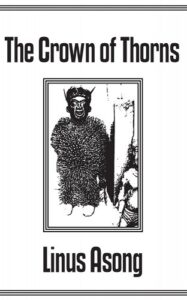
T. Linus Asong, The Crown of Thorns (Cosmos Educational Publishers)
Set in an imaginary village—Nkokonoko Small Monje, to be precise—this post-colonial story highlights the destructive power of greed, political intrigue, and power-mongering. Opening directly with an intense moment, as one of the most influential elders stands accused of helping to steal and sell the village god to a white tourist, this 1990 publication is a intense ride through a controversial enthronement that creates opposing camps bent on leaving no insult unanswered.
In the ensuing clashes, the village chief conspires with the hated Government official to commit an unforgivable abomination, setting in a motion a series of events that culminate in great tragedy. A mainstay on the curriculum in the English-speaking system of education, I was made the read this in school, but it has over years become a delightful recreational read.
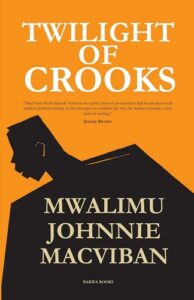
Mwalimu Johnnie MacViban, Twilight of Crooks (Bakwa Books)
A mayor, politics, a police detective, a suspicious murder, an oil tycoon, a nosy investigative journalist, the lingering scent of foul play: they are all combined to dazzling effect in this 2021 work of fiction. Amid the standard tensions of a crime-infested city—a curious journalist versus protective detective; a zealous journalist versus a survival-minded newspaper editor—author Mwalimu Johnnie MacViban builds a solid backdrop for a story of forced exile for protagonist, Jason Makelekele, an investigative journalist who thinks he is going on an all-expenses-paid refresher training course in Germany.
He only discovers once in Bonn, Germany that he can’t return home. He has been in fact been tricked to go on exile. The West here becomes a prison, one to which dissenting voices and curious eyes are shipped with zero prospect of return. Found somewhere between historical fiction, neo-noir, and softcore political thriller, this 132-page read is a genre breath of fresh air.
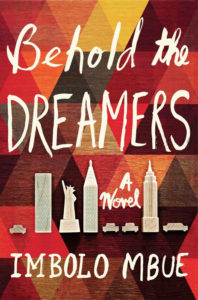
Imbolo Mbue, Behold the Dreamers (Random House)
This 2016 release details the financial, emotional, and cultural struggle for survival of an immigrant Cameroonian family in America in the shadows of the 2008 financial crisis. Obsessed with being a progressive man and provider, Jendi—the husband—works himself to the bone to provide for his wife and son and secure their immigration status. Author Imbolo Mbue excellently portrays the many ways in which immigration to the United States exposes families to a number of ordeals which they do not expect or are prepared for.
Immigration becomes a dilemma, never providing complete immunity from all the strains of life but comparatively better than life in the immigrant’s country of origin. Furthermore, it is an abrasive introduction to new challenges—like racism—immigrants do not have the emotional and mental bandwith to address, enduring it grudgingly and silently so that it doesn’t distract them from their ultimate goal: survival.
__________________________________
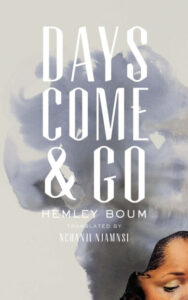
Days Come and Go by Hemley Boum, translated by Nchanji Njamnsi is available from Two Lines Press.








